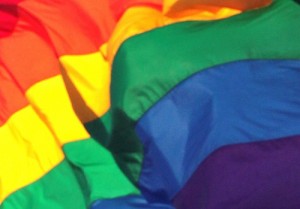States Pass Seemingly Anti-LGBT Legislation in Response to U.S. Supreme Court’s Ruling on Gay Marriage
June 20th, 2016

If we as a society do not stand against such hatred, then we are contributing to it.
Mississippi recently became the third state this year to sign a bill against lesbian, gay, bisexual, and transgender (LGBT) rights. The bill, set to take effect on July 1, 2016, allows businesses with religious objections to refuse their services to gay couples. This anti-LGBT legislation is potentially far-reaching in terms of discrimination, and allows religious organizations to deny LGBT people to marry, adopt, and foster. Under this bill, medical professionals may refuse services related to gender transitioning or sex reassignment. Additionally, a wide array of businesses may refuse wedding services to LGBT people. For example, DJs, photographers, florists, dressmakers, bakers, and venue rental companies may deny wedding services based on their religious belief that marriage is between a man and a woman, that a person’s gender only correspond with their gender at birth, and that sexual relations only occur during marriage.
The other two states – North Carolina and Kansas – passed seemingly anti-LGBT laws in March of this year. North Carolina’s legislation prohibits transgender people from using bathrooms that do not correspond with their gender at birth, rather than the gender they identify with. Kansas’ legislation allows campus religious groups to restrict membership.
According to the Human Rights Campaign, there were nearly 200 proposed bills against LGBT rights across approximately 36 states just this year. The proposals of these anti-LGBT bills follows the United States Supreme Court ruling last year granting gay couples the right to marry.
Proponents of these bills contend that the bills are necessary to protect an individual’s rights to practice their religious beliefs free from government interference. Proponents claim that the bills do not incite discrimination against LGBTs, but rather curb discrimination against individuals practicing their religious beliefs. Opponents, however, caution that these laws perpetuate discrimination by allowing businesses and public institutions to discriminate based on sexual orientation (or gender, ethnicity, etc.) by claiming a religious reason for a refusal or service or membership. Even religious organizations oppose these bills, claiming that the laws in essence use religious beliefs to excuse and validate discrimination.
Another consequence of the enactment of these bills is financial hardship. Because of the enactment of the legislation in North Carolina, PayPal announced that it will abandon plans to open a global operations center in Charlotte. PayPal’s expansion into Charlotte was expected to employ approximately 400 people and bring millions to Charlotte’s local economy. The Kansas legislation could potentially affect Kansas students by limiting federal financial aid. Large corporations such as Nissan, Toyota, AT&T, and IBM denounced the legislation passed in Mississippi. Additionally, the influx of lawsuits that will likely result in response to such legislation could cost states substantially.
The constitutionality of the bills discussed herein will surely be questioned, and lawsuits alleging violation of constitutional rights are forthcoming. It will be interesting to see how these challenges play out, and the Universal Life Church will continue to monitor the enactment of these laws and the effect the enactment of these laws have on both LGBT persons and those claiming religious objections.


